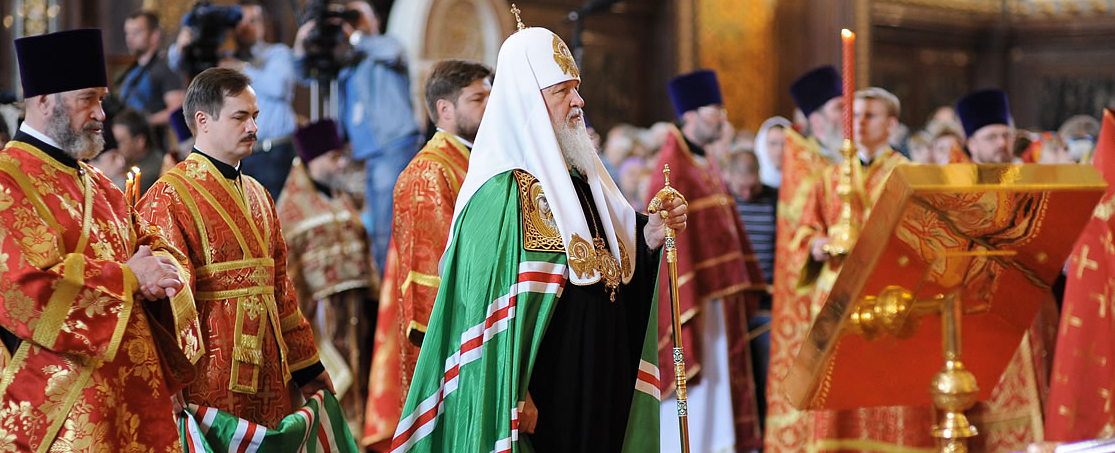
The following represent the teaching of the Orthodox Church on abortion from the [early] second century through the fifth century…. Note that penalties, when they are given, are neither civil nor criminal, but ecclesiastical and pastoral (excommunication for the purpose of inducing repentance). Also note that the these quotes deal with both surgical and chemically induced abortion, both pre- and post-quickening.
From the Letter to Diognetus:
(speaking of what distinguishes Christians from pagans) “They marry, as do all others; they beget children but they do not destroy their offspring” (literally, “cast away fetuses”).
From the Didache (ca 70 ad):
“You shall not slay the child by abortions.”
From the Letter of Barnabus:
“You shall not destroy your conceptions before they are brought forth; nor kill them after they are born.”
From St. Clement:
“Those who use abortifacients commit homicide.”
From St. Hipploytus of Rome, “Refutation Of All Heresies,” c. 225 A.D.
“Women who were reputed believers began to resort to drugs for producing sterility. They also girded themselves around, so as to expel what was being conceived. For they did not wish to have a child by either slave or by any common fellow – out of concern for their family and their excessive wealth. See what a great impiety the lawless one has advanced! He teaches adultery and murder at the same time!”
From Tertullian:
“The mold in the womb may not be destroyed.”
St. Cyprian of Carthage, “Epistle 52 To Cornelius,” c. 251 A.D.
“He [the schismatic Novatian] struck the womb of his wife with his heel and hurried an abortion, thereby causing parricide.”
From St. Basil the Great:
“The woman who purposely destroys her unborn child is guilty of murder. The hair-splitting difference between formed and unformed makes no difference to us.”
From St. Augustine:
“Sometimes their sadistic licentiousness goes so far that they procure poison to produce infertility, and when this is of no avail, they find one means or another to destroy the unborn and flush it from the mother’s womb. For they desire to see their offspring perish before it is alive or, if it has already been granted life, they seek to kill it within the mother’s body before it is born.”
From St. Jerome
“Others drink for sterility and commit murder on the human not yet sown. Some when they sense that they have conceived by sin, consider the poisons for abortion, and frequently die themselves along with it, and go to Hell guilty of three crimes: murdering themselves, committing adultery against Christ, and murder against their unborn child.”
From St. Ambrose of Milan
“The rich women, to avoid dividing the inheritance among many, kill their own fetus in the womb and with murderous juices extinguish in the genital chamber their children.”
From St. John Chrysostom:
“Why do you sow where the field is eager to destroy the fruit? Where there are medicines of sterility? Where there is murder before birth? You do not even let a harlot remain only a harlot, but you make her a murderess as well. Indeed, it is something worse than murder and I do not know what to call it; for she does not kill what is formed but prevents its formation. What then? Do you condemn the gifts of God, and fight with His laws? What is a curse you seek as though it were a blessing. Do you make the anteroom of slaughter? Do you teach the women who are given to you for a procreation of offspring to perpetuate killing?”
“To destroy the fetus ‘is something worse than murder.’ The one who does this ‘does not take away life that has already been born, but prevents it from being born.'”
Canon XCI:
As for women who furnish drugs for the purpose of procuring abortions, and those who take fetus-killing poisons, they are made subject to penalty for murderers.
Canon II:
“A woman who aborts deliberately is liable to trial as a murderess. This is not a precise assertion of some figurative and inexpressible conception that passes current among us. For here there is involved the queston of providing for the infants to be born, but also for the woman who has plotted against her own self. For in most cases the women die in the course of such operations, But besides this there is to be noted the fact that the destruction of the embryo constitutes another murder…. It behooves us, however, not to extend their confessions to the extreme limit of death, but to admit them at the end of the moderate period of ten years, without specifying a definite time, but adjusting the cure to the manner of penitence.”
Canon XXI:
“Regarding women who become prostitutes and kill their babies, and who make it their business to concoct abortives, the former rule barred them for life from communion, and they are left without resource. But having found a more philanthropic alternative, we have fixed the penalty at ten years, in accordance with the fixed degrees. …”
“As for women who destroy embryos professionally, and those (non-prostitutes) who give or take poisons with the object of aborting babies and dropping them prematurely, we prescribe the rule that they, by economy, be treated up to five years at most.”
Sources: OrthodoxyToday.org, Catholic News
